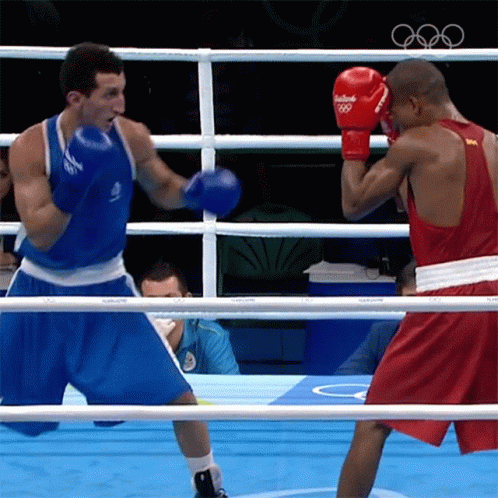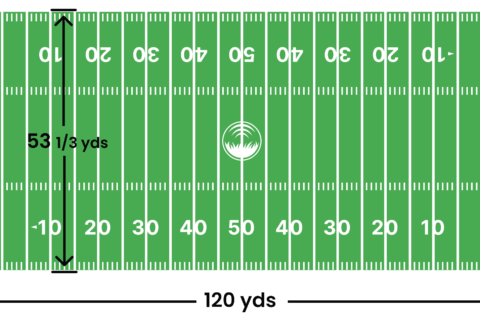Turning your back on your opponent in boxing is illegal. It can result in penalties or disqualification.
Boxing is a sport that requires constant engagement and vigilance. Turning your back during a match is considered a defensive foul. This action disrupts the flow of the fight and can give one fighter an unfair advantage. Referees are strict about this rule to ensure fighters remain focused and fair play is maintained.
Penalties for this infraction can include point deductions or even disqualification, depending on the severity and frequency. Understanding this rule is crucial for anyone stepping into the ring, as maintaining proper conduct is key to a fair and competitive match.

Credit: www.reddit.com
The Essence Of Boxing Rules
Boxing rules are made for safety and fair play. Fighters must follow these rules. Turning your back on your opponent is not allowed. It is considered a foul. This can result in warnings or point deductions. Referees ensure fair and safe fights.
Safety is very important in boxing. Turning away can make you vulnerable to attacks. This can lead to serious injuries. Fair play means both fighters compete under the same rules. Breaking these rules affects the integrity of the sport. Boxers must always face their opponent. This keeps the fight fair and safe for everyone.
Turning Your Back In Boxing: Legal Or Not?
Boxing has strict rules. One rule is about turning your back. This action is not allowed. Referees see it as a foul. Turning away can be dangerous. It shows fear or lack of skill. Boxers should always face their opponent.
Turning your back can lead to penalties. Referees may warn the boxer. Repeated actions can lead to disqualification. This can change the outcome of a match. Boxers should stay alert and face their opponent at all times.
Reasons Behind The Rule
Turning your back in boxing can be very dangerous. It leaves you vulnerable to punches. This can lead to serious injuries. Boxing rules aim to protect fighters. Safety is the main reason for this rule. Coaches always tell boxers to face their opponent. This keeps both boxers safe during the match. Referees enforce this rule strictly.
Boxing is about skill and strategy. Turning your back goes against these principles. It can be seen as unsportsmanlike behavior. This rule ensures the fight stays fair. Fans expect fighters to follow the rules. It maintains the integrity of the sport. Fair play is important in any competition. This rule helps keep boxing fair and exciting.
Consequences Of Turning Your Back
Turning your back on an opponent can have serious consequences. The referee may see it as a sign of weakness. This action can lead to a loss of points. It can also expose you to unexpected punches. Always stay alert and face your opponent.
Boxers who turn their backs may face penalties. Referees can give a warning for the first time. Repeated actions might result in disqualification. Such penalties affect your reputation and career. Make sure to follow the rules and stay focused.
Famous Instances In The Ring
One famous moment was when Muhammad Ali faced Sonny Liston. Ali’s quick movements and tactics made Liston look confused. Another instance was Mike Tyson against Evander Holyfield. Tyson turned his back after Holyfield bit his ear.
Turning your back can be dangerous. Opponents might take advantage. Boxers learned to stay alert. This helps them avoid unexpected hits. Staying focused is key in the ring.

Credit: www.telegraph.co.uk
Training To Avoid The Turn
Boxers must keep their eyes on their opponent. Turning your back is dangerous. Practice moving sideways. Use footwork drills to stay balanced. Always face forward. Trainers teach fighters to pivot. This keeps them alert. Avoiding the turn helps you stay safe.
Staying focused is key in boxing. Think about your next move. Keep your mind sharp. Visualize your opponent. Plan your actions. Confidence is important. Believe in your training. Trust your skills. Stay calm under pressure. A clear mind helps you avoid mistakes.
Referees’ Role And Responsibilities
Referees have a big job in the ring. They must enforce the rules at all times. Turning your back on your opponent is not allowed. This action can lead to penalties. The referee can warn the boxer first. If it happens again, points can be taken away. In some cases, the boxer may even be disqualified.
Boxer safety is very important. Referees watch for any dangerous actions. Turning your back can be dangerous. It makes the boxer an easy target. Referees stop the fight if a boxer is in danger. They protect the boxers from serious harm. The referee’s job is to keep the fight fair and safe.
Credit: www.quora.com
Debates And Discussions
Boxing rules often spark debates, especially on turning your back on an opponent. This action can lead to penalties or disqualification. Understanding the implications is crucial for both boxers and enthusiasts.
Controversies Around The Rule
Some people think turning your back in boxing is a smart move. Others believe it is unfair. This action can confuse the opponent. But it can also be seen as avoiding the fight. Some referees give a warning. Other times, the boxer may face penalties. Different countries have different rules. This can make things even more confusing. Fans and experts often discuss this topic. Their opinions vary widely.
Possible Rule Changes
Many boxing organizations are talking about rule changes. They want to make the sport safer. Some ideas include clear penalties for turning around. Others suggest more education for boxers. Training could focus on keeping a fair fight. Rules could also become more uniform. This means the same rules everywhere. This could help reduce confusion. Safety and fairness are the main goals. Everyone wants a fair match.
Conclusion
Understanding boxing rules is crucial for any fighter. Turning your back can lead to penalties or disqualification. Always stay informed and practice proper techniques to ensure safety and compliance. Remember, respect your opponent and the sport to maintain fair play and integrity in the ring.








